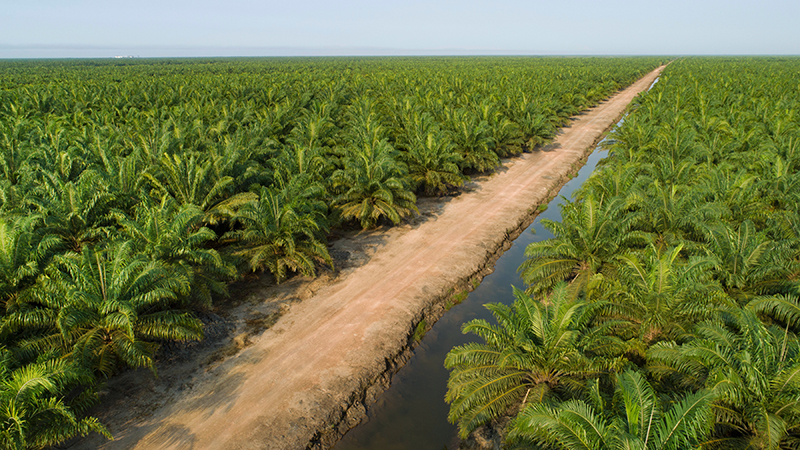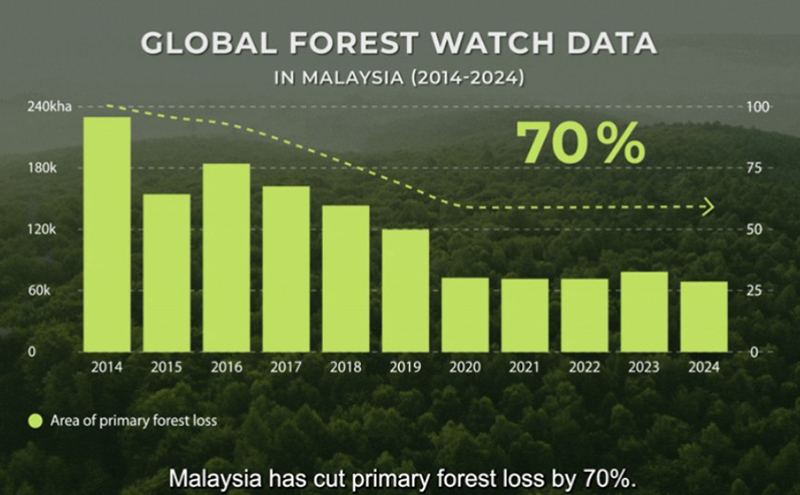EU Commissioner’s Malaysia Visit Delivers Progress but Not ‘Low Risk’ Reclassification, Yet
European Commissioner for Environment, Water Resilience and a Competitive Circular Economy, Her Excellency Jessika Roswall, notably praises Malaysia’s palm oil sector for its efforts in reducing deforestation and improving the overall traceability system.

In early September this year, European Commissioner for Environment, Water Resilience and a Competitive Circular Economy, Her Excellency Jessika Roswall visited Malaysia to co-chair the first-ever ASEAN–EU Ministerial Dialogue on Environment and Climate Change. While the meeting on Langkawi Island focused on biodiversity, water resilience, and the need for transnational cooperation on climate change, Commissioner Roswall also visited Kuala Lumpur for a pivotal meeting with Minister of Plantation and Commodities, Malaysia, YB Datuk Seri Johari Abdul Ghani. She also met representatives of the Malaysian palm oil industry and visited SD Guthrie’s oil palm plantation site on Carey Island.
Commissioner Roswall’s visit was not expected to result in a breakthrough announcement on Malaysia’s ‘standard risk’ status under the European Union Deforestation Regulation (EUDR), which is the main bone of contention with the Commission, but it did result in a notable rhetorical shift from the EU. The EU delegation’s traditional post-visit statement was more positive than usual. It praised Malaysia for its progress in reducing deforestation in line with international expectations. It acknowledged Malaysian Sustainable Palm Oil’s (MSPO) high-quality digital traceability system and independent third-party audits, and it acknowledged MSPO as “a credible pathway to compliance” under the EUDR.

Moreover, once EUDR is up and running, it potentially signals a more permissive approach to Malaysian palm oil imports from the EU member states’ national ‘Competent Authorities’, the bodies charged with policing and enforcing the EUDR in Europe. It could mean that Competent Authorities will be inclined to treat MSPO certification as credible evidence of sustainable practices.
From a practical perspective, this means that palm oil suppliers will be able to use existing MSPO documentation as part of the EUDR due diligence process, including evidence related to compliance with local laws, deforestation cut-off dates and traceability chains. This should mean less documentation, lower compliance costs, and increased clarity for producers as they prepare for the EUDR implementation deadline.
However, while undoubtedly a step forward for the sector, the Commissioner’s statement stopped short of granting MSPO “equivalence” for EUDR purposes. It is not the case that MSPO-certified palm oil will now automatically be deemed EUDR-compliant. Malaysian producers will still need to prove compliance on a shipment-by-shipment basis, with MSPO documentation treated as evidence of sustainability rather than proof of compliance in itself.
Nor does the EU’s rhetoric suggest a softening in the Commission’s stance on Malaysia’s country benchmarking status under the EUDR. Malaysia is currently classified as ‘standard risk’ despite the current data pointing to the possibility of ‘low risk’. The Commission is expected to review its benchmarking assessments in the first quarter of 2026, once new FAO forest resources data becomes available. If Malaysia’s status doesn’t change, suppliers will continue to face steeper regulatory hurdles than their counterparts in ‘low-risk’ countries such as Sweden, the USA, Australia, and Japan.

World Resources Institute data shows Malaysia reduced its primary forest loss by 70% between 2014 and 2024. (Reference)


